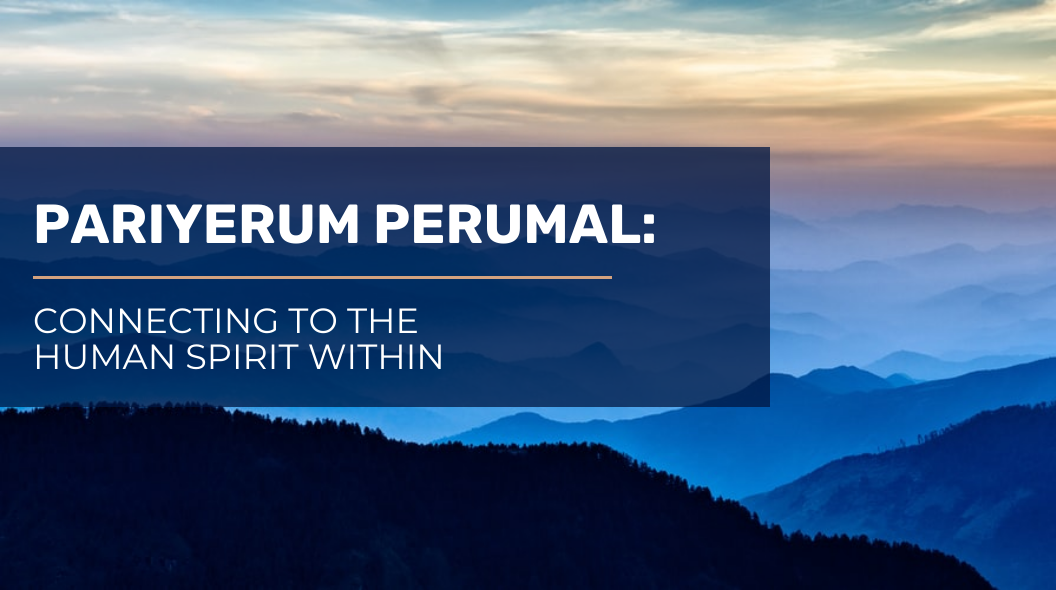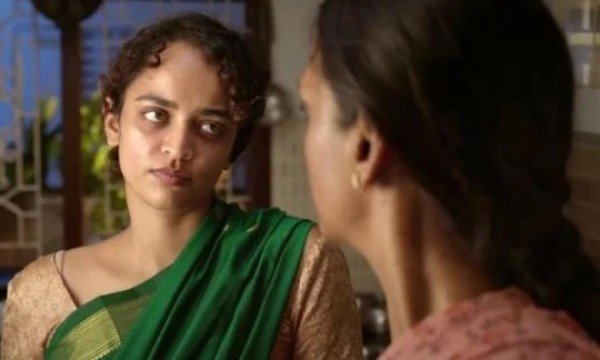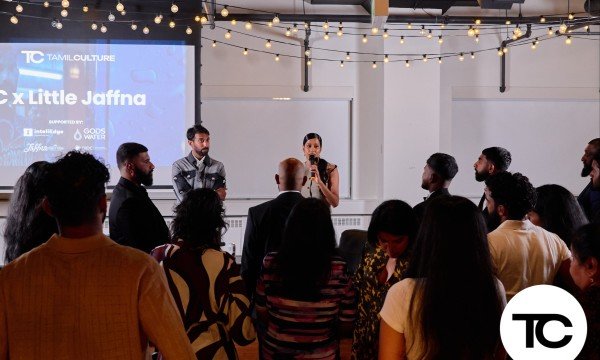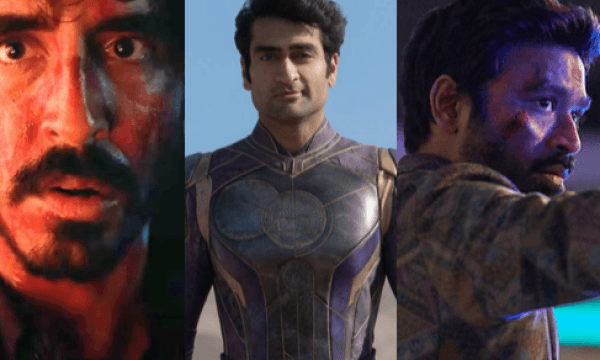
Pariyerum Perumal is a film about a young, lower caste man (of the same name, played by Kathir) in Tamil Nadu, who experiences violent casteism in his first year of college. The film follows Pariyerum Perumal, also known as Pariyan, as he is pushed to the edge and forced to decide how he’ll respond.
A disclaimer, I’m very new to Tamil films.
In fact, I only really started watching Tamil movies this year. My wife started a virtual film club with some of our friends (one way to cope with COVID-19 lockdowns). I feel I’ve discovered a lot of Tamil movie gems that I look forward to reflecting on.
And Pariyerum Perumal is one of them.
I love this movie. It is heart-wrenching, painful, funny, inspiring and powerfully moving.
While there are so many things to dissect and appreciate, I want to focus on one specific thing. I feel it’s central to the film, and important to understanding Pariyan's journey. But also, it’s a great device for narrating a story.
That’s the symbolism of Karuppi, Pariyan’s dog.
I believe Karuppi is a symbol of Pariyan’s soul, and his ability to make choices that align with the will of his soul, ultimately saves him.
Warning. Warning. Spoilers, incoming.
If you haven’t seen the film but think it sounds like your jam (read the synopsis here), then do it. Your experience of the movie should not be shaped by anyone else’s opinions or hot takes.
As for me, I’m totally biased here, and I’m going to talk about what made it so special for me. In that process, I’m hoping to unpack something meaningful.
So let’s dive in.
The murder of Karuppi
The entire film’s set up through this tragic event that takes place within minutes - Karuppi’s murder.
Pariyan and his fellow hunters are out on their hunt. Pariyan is accompanied by his doggo hunting-companion, Karuppi.
They encounter another group, who belong to a different caste, by a watering hole out in the wild. Pariyan doesn’t feel inclined to move as they approach (although social convention demands they do), there is a confrontation which fizzles out, and his group moves on.
The day goes on, and Pariyan later realizes Karuppi is nowhere to be seen. She doesn’t respond to his call. His friend makes a grim suggestion. The blare of an approaching train sounds, Pariyan is struck with fear and he takes off, tearing through the brush and fields.
Karuppi’s been tied to the train tracks.
The train approaches, Pariyan reaches the tracks at the fatal moment, and Karuppi is struck dead. As the scene comes to a close, the song plays where Pariyan laments Karuppi’s loss.
Pariyan and Karuppi, kindred spirits
This song is important for three reasons:
-
It describes the deep connection Pariyan shared with Karuppi.
-
It foreshadows the similarities between Pariyan and Karuppi.
-
It’s a great song.
First, we learn about their closeness - Pariyan and Karuppi.
There’s a line where Pariyan questions who is the one weeping, and who has been killed:
Azhinjadhu neeya
Azhuvadhu naana
Azhuvadhu neeya
Azhinjadhu naana
It speaks to the magnitude of his pain, but also the emotional oneness he feels with Karuppi.
Her death feels like his death. Her mutilated heart, is his mutilated heart.
Pariyan goes on to say things like he had warned her not to follow when someone calls her, not to trust people blindly, and that these people will just as easily laugh with you, as they will hurt you; cry with you, but also watch you get tormented:
Yaar kooptu nee pona
Yendi pona
Ethana thadava solliyirukken
Ellam manusanum ingae onnu illaenu
Valathu Anaikkiravan, Kazhutha Nerikkiravan, Kanna Thadavuravan
Kaala Nodikiravan, Konnu Sirikiravan, Ninnu Azhugiravan
It paints a bleak world that Pariyan is aware of, but in her innocence, Karuppi was not. She was blind to the dark hearts of strangers.
If Pariyan and Karuppi are truly one and the same, then we can assume this is where Pariyan’s own persecution is foreshadowed. After all, he blindly goes when he is called and nearly killed, himself. He too, in his own way, is innocent and blind to the magnitude of cruelty that awaits him.
An impossible choice to make
As the story progresses, Pariyan faces all sorts of abuse. He grapples with this new, lawless world, trying to figure out what to do. He is angry, confused, afraid, on edge and alone.
He has members of his own community on campus, ready to fight for him, meeting violence with violence. He sees the Marxists on campus railing against power systems. He sees Anand (Yogi Babu), his closest friend on campus, who doesn’t care about caste but also doesn’t speak out against it. Lastly, someone he could grow to truly love, Jothi (Anandhi), is completely (and happily) ignorant to the notion of casteism.
These groups of people represent ideologies, ideas that Pariyan can simply adopt as a response to his frightful new world.
But they do not fit him.
Those who would protect him, will not liberate him.
Those who would change policies, will not change the hearts of people.
His friends will not change for him.
The girl who he was growing to love refuses to see him and his plight.
One by one, as he grapples with this reality, these people who represent these choices fall away. How many of us understand what he feels? His psyche is bending and bending, ready to snap.
Pariyan has to do something.
Karuppi returns, with an answer from within
His despair reaches its climax when Jyothi walks away from him with finality. His last connection or tether to the world, breaks. He is entirely lost and alone, drifting through a vast void without answers.
We hear her footfalls as she crosses the room and vanishes beyond the doorway.
There is a brief lull, Pariyan is abandoned, alone and in silence. As the audience, we too are made to wonder, what now? What’s left? Where does this all lead? The camera stays on the doorway.
And it is at that point, Karuppi enters the room, filling the emptiness once again. She has returned to him, his heart and soul.
Pariyan is reminded of who he is, and what he must do.
Naan yaar? Pariyan’s transformation
Another major turning point is conveyed through music. The song is Pariyan questioning who he is, tallying up his experiences and those of his fellow lower caste members who have been murdered, wondering what it all amounts to. These experiences are contrasted with Jyothi and her own rosy view of the world.
Yet, it is upbeat, defiant and hopeful.
As Pariyan sees the world in its entirety laid out before him, contemplating who he is, I believe he discovers it as well.
Pariyan is all of the lower caste people we saw get murdered. He is the embodiment of the persecution that takes place each and every day. He represents all the victims of caste-motivated violence and cruelty.
But he will not allow the “solutions” of others to dictate who he ought to be, or how he will respond to this reality. He will not give up who he is in order to cope.
Instead, he will embrace who he is and impose that on others. This realization, this awareness, is his transformation.
Why?
It comes back to Karuppi. She is him. He is Karuppi.
At the moment of her death, Karuppi was immortalized as an innocent, gentle creature that is worthy of love, affection, and empathy. She is devoted, loving and kind-hearted in return, without judgement. That is how she dies, and that is how she remains, imprinted on Pariyan’s soul.
And in that, she is an incorruptible symbol of power. She is his source of strength and inspiration, but also just a visual representation of his own spirit, strength, and power. I would go further to say that Karuppi’s complexion, her jet black fur, is also meant to symbolize power.
At peak despair, Pariyan descends deep into his own self, tapping into something that is pure and has always been present to him. And it is the answer to his suffering.
Perhaps, this all seems a little too mystical. I don’t mean to suggest there is anything religious about this transformation. But it is important to understand that Pariyan did not respond to the world emotionally, or intellectually, or philosophically like those around him did.
He discovered his answer deep within himself and it transcends the half-measures, or incomplete responses to casteism in the world today. At least, incomplete to him.
That is its power.
And that is as real a journey as any.
Whatever murky depths of the unconscious he tapped into, I want to say that that is his human spirit. An incorruptible force we all possess, that we can discover at times of need, to find the strength to persevere.
And rather than be shaped and influenced by the world in which we live, we shape and influence the world by how we choose to live.
By the end of the film, Pariyan is larger than life. He is an evolved individual who is strong, indomitable, fearless, and yet, compassionate, tender, and loving. He brings together qualities that no one else could in his world. Suffering and pain bound to patience and compassion, through heightened clarity, rather than ignorance.
When art imitates life
I think Pariyerum Perumal manages to capture a personal journey that you can’t share in just an autobiography, or an essay, or a debate, or through a philosophy or ideology. Instead it shows us something tremendously human, heartfelt, and deeply private. This is something that happens on the inside, without our knowledge, like magma churning beneath the ocean floor.
And it is only through skillful direction, writing, and music that we see just a glimpse of one journey - just one! We need to remind ourselves that lower caste people face these circumstances and are forced into these existential crises throughout India, regularly.
On the outside, we do not see the Pariyans of the world go through this life-altering, unnerving process. We simply encounter them before or after.
As a work of art, this film closely catalogues, I think, a genuine human, transformative experience. But it is also something that is intangible. It exists in a space that only art can distill and display for us.
This is a story of a personal journey, and as the audience, we are allowed to be a part of it. That is why Pariyerum Perumal, to me, is unforgettable.
As one final remark, I’d like to add, I’m not advocating for Pariyan’s choices. The issue of casteism, the experiences of those who suffer due to the casteism’s pervasiveness, and how it should be addressed is way beyond anything I would ever hope to speak to.
But the way Pariyan’s personal story is told remains moving and awe-inspiring to me.
***Looking to create your love story? Join the other couples who have dated and got married through myTamilDate.com!***
"How France Met Canada: A MyTamilDate.com Love Story"
"How a Message on myTamilDate.com Led to an Engagement for Lavanya & Vitharan"
Related Articles:
- "University Drop-out & Self-Taught Tamil Artist JYDXI Finds Success Through Instagram"
- "How A Daily Ritual and Family Heritage Inspired a Multi-Million Dollar Company: Meet Sashee Chandran, Founder of Tea Drops"
- "These Tamil Entrepreneurs Share How They Grew Their Side Hustles"
- "Tamil Innovators Spotlight: Tea Drops CEO & Founder, Sashee Chandran"
- "Tamil Innovators Spotlight: Knowledgehook's CEO, Travis Ratnam"
- "Tamil Innovators Spotlight: Kabo CEO & Founder, Vino Jeyapalan"
- "Danny Sriskandarajah's Journey From Rural Sri Lanka to CEO of Oxfam Great Britain"
- "Meet Tamil-Canadian Tech Entrepreneur Mano Kulasingam"
- "The NBA Bubble: Dr. Priya Sampathkumar Helped Make It Happen"
- "These Tamil Founders Behind Agritech Startup Dunya Habitats Want To Alleviate Food Security Globally"
- "Marketing Maven Jackson Jeyanayagam Shares Insights From His Illustrious 20-Year Career"
- "Angel Investor Jay Vasantharajah On Building His Portfolio One Day At A Time"
- "Meet Tamil-Canadian Journalist Kumutha Ramanathan"
- "Breaking Into Hollywood: Meet Tamil-Canadian Actor Vas Saranga"
- "Meet Rebecca Dharmapalan - Filmmaker, Legal Scholar, And Activist"

























